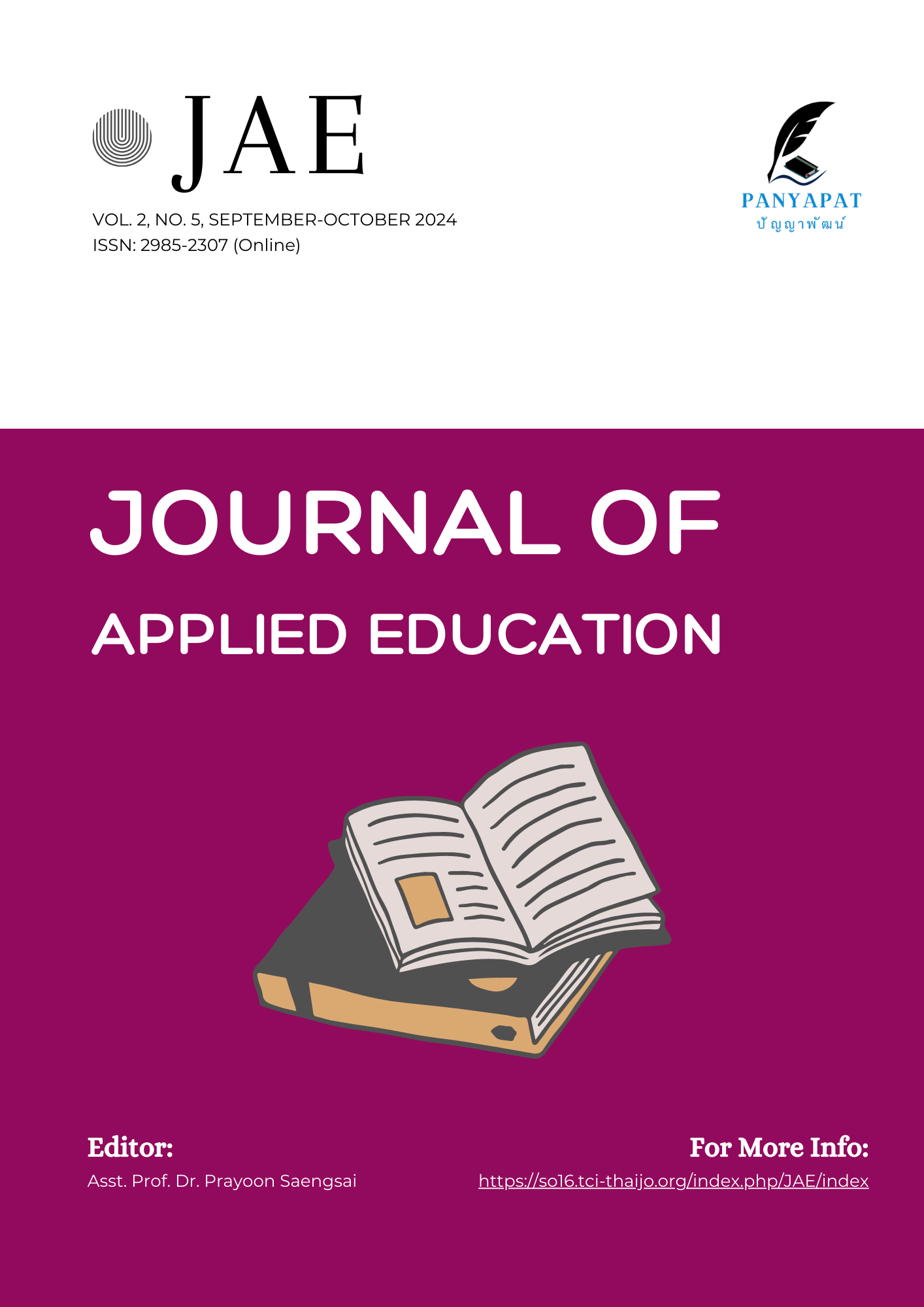Emotional Intelligence of Administrators in Basic Education School of Phen Group School 2, under the Udon Thani Primary Educational Service Area Office 1
Main Article Content
Abstract
This research aims (1) to study the emotional intelligence of school administrators and (2) to compare the emotional intelligence of school administrators in the Pen 2 group of schools under the Office of the Primary Educational Service Area 1, Udon Thani, classified by position, work experience, and education level. This study is quantitative research. The sample group used in the research is 127 school administrators and teachers in the Pen 2 group of schools under the Office of the Primary Educational Service Area 1, Udon Thani. The research instrument is a 5-level rating scale questionnaire. The statistics used for data analysis are percentage, mean, standard deviation, t-test, One-way ANOVA, and Scheffe's pairwise difference test. The results of the research found that the emotional intelligence of school administrators in the Pen 2 group of schools under the Office of the Primary Educational Service Area 1, Udon Thani, is at a high level overall. The results of the comparison of emotional intelligence of school administrators of Pen 2 Group School under the Office of Udon Thani Primary Educational Service Area 1 found that school administrators and teachers with different positions, work experience, and education levels had opinions on the emotional intelligence of school administrators of Pen 2 Group School under the Office of Udon Thani Primary Educational Service Area 1 that were not different overall.
Article Details

This work is licensed under a Creative Commons Attribution-NonCommercial-NoDerivatives 4.0 International License.
References
กนกพร โพธิมณี. (2562). ความฉลาดทางอารมณ์ของผู้บริหารสถานศึกษา สังกัดสำนักงานเขตพื้นที่การศึกษาประถมศึกษาจันทบุรี. (ครุศาสตรมหาบัณฑิต, มหาวิทยาลัยราชภัฏรำไพพรรณี).
กรมสุขภาพจิต กระทรวงสาธารณสุข. (2558). ฝึกคิด แก้ไขปัญหา พัฒนา EQ. กรุงเทพฯ: ศูนย์สื่อและสิ่งพิมพ์แก้วเจ้าจอม มหาวิทยาลัยราชภัฎสวนสุนันทา.
กุหลาบ ปุริสาร. (2561). แนวทางการพัฒนาความฉลาดทางอารมณ์สู่ผู้นำที่มีประสิทธิผลของผู้บริหารในศตวรรษที่ 21. วารสารวิทยาลัยบัณฑิตเอเชีย, 8(1), 1-9
บุญชม ศรีสะอาด. (2560). การวิจัยเบื้องต้น ฉบับปรับปรุงใหม่. (พิมพ์ครั้งที่10). กรุงเทพฯ: สุวีริยาสาส์น.
ปฐมวิทย์ วิธิรวาท. (2565). ความฉลาดทางอารมณ์ของผู้บริหารสถานศึกษาสังกัดสำนักงานเขตพื้นที่การศึกษา ประถมศึกษาพะเยา เขต 1. (การศึกษามหาบัณฑิต, มหาวิทยาลัยพะเยา).
สมฤทัย คุ้มสกุล. (2559). ความฉลาดทางอารมณ์ของผู้บริหารสถานศึกษาสังกัดสำนักงานเขตพื้นที่การศึกษาประถมศึกษาจันทบุรี เขต 1. (การศึกษามหาบัณฑิต, มหาวิทยาลัยบูรพา).
สำนักงานเขตพื้นที่การศึกษาประถมศึกษาอุดรธานี เขต 1. (2565). ข้อมูลสำนักงานเขตพื้นที่การศึกษาประถมศึกษาอุดรธานี เขต 1. อุดรธานี: กลุ่มนโยบายและแผน สำนักงานเขตพื้นที่การศึกษาประถมศึกษาอุดรธานี เขต 1.
สำนักงานเลขาธิการสภาการศึกษา. (2552). องค์ความรู้เกี่ยวกับคุณลักษณะของคนไทยที่พึงประสงค์: ความฉลาดทางอารมณ์ (Emotional Quotient: EQ). กรุงเทพฯ: พริกหวานกราฟฟิค.
สำนักงานเลขาธิการสภาการศึกษา. (2560). แผนการศึกษาแห่งชาติ พ.ศ.2560 - 2579. กรุงเทพฯ: พริกหวานกราฟฟิค.
Cooper. R. K. & Sawaf, A. (1997). Executive EQ Intelligence in Leadership and Organization. New York: Grossest & Putna.
Gardner, H. (1993). Multiple Intelligence: The Theory in Practice. New York: Basic Books.
Goleman, D. (2013). Emotional Intelligence It Can Matter More Than IQ. New York: Bantam Book.
Justin, B. (2018). An inside Look: Steve Jobs. Teaches Business Strategy 101 Want to improve your business strategy. New York: Basic Books.
Krejcie, R. V. & Morgan, D. W. (1970). Determining Sample Size for Research Activities. Educational and Psychological Measurement, 30(3), 607-610.
Salovey, P. & Mayer, J.D. (1997). Emotional intelligence. Imagination, cognition and personality. New York: Basic Books.
Wagner, R. K. & Sternberg, R. J. (1985). Practical Intelligence: Nature and Origins of Competence in The Everyday World. Cambridge: Cambridge University Press.

